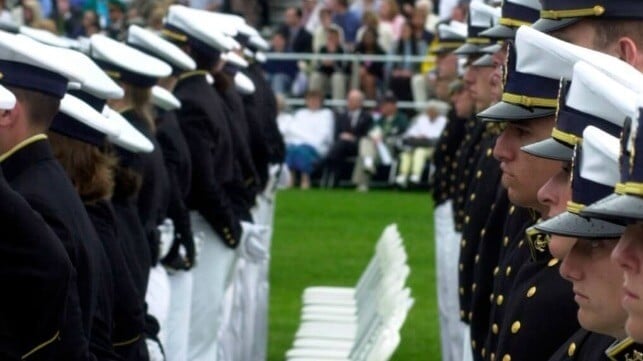Op-Ed: US Coast Guard Must Prosecute Former Leaders Who Covered Up Abuse

The Senate Homeland Security and Governmental Affairs Committee is holding a hearing this Tuesday regarding sexual harassment and sexual assault in the Coast Guard. Survivors spanning decades of service to the United States will testify about horrific crimes that occurred under the watch of countless Coast Guard leaders. The end result must be the recall and prosecution of those leaders for failure to prosecute known crimes.
One of the Coast Guard’s antecedent agencies is the U.S. Lighthouse Service. Hundreds of lighthouses were built along the coasts - New London Ledge Light, Mission Point Lighthouse, Bolivar Lighthouse. These sturdy structures with bright, sweeping lights warned nearby ships of danger.
Like lighthouses, Coast Guard personnel warned service leaders of dangers, rapes and sexual harassment. Their lights were voices highlighting crimes that destroyed lives.
In 2006, a U.S. Coast Guard Academy cadet was prosecuted for assaulting six female cadets. A former Coast Guard Academy cadet shared her story with Congress, highlighting the retaliation she faced after accusing a fellow cadet of sexual assault. U.S. Representative Christoper Shays organized a panel, which included Coast Guard participants, entitled "Sexual Assault and Violence Against Women in the Military and at the Academies." The bright, loud voices warned of danger but the danger was not addressed.
Eight years later I testified twice in January 2014 about sexual assault in the military before a Congressionally mandated panel. Later that year, the Coast Guard initiated Operation Fouled Anchor, but the danger didn’t subside.
In 2015, a former US Coast Guard Academy cadet was charged with raping a fellow student at the school in 1997. The courts ruled that the government waited too long to prosecute the alleged rapist, so the case was dismissed.
Last month, current Coast Guard leaders and personnel, survivors, and allies participated in a “healing event." Admiral Fagan shared that she was committed to ensuring a safe environment for current Coast Guard personnel. Survivors sat in stunned silence wondering why she refused to use her positional power to hold past leaders accountable for the dangerous waters that ensnared countless male and female victims.
There will be several witnesses at the Senate hearing on Tuesday. They will testify about crimes that occurred in the 1970s when women were first admitted to the US Coast Guard Academy. They’ll testify about rapes perpetrated against women in the 1990s, early 2000s and today. Their testimony will be magnified by supporting officer and enlisted accounts shared with the committee chronicling who was involved in the crimes and the cover-up.
Younger survivors are using social media like Instagram to share their stories. Last month, one shared her story of three rapes. The first by a superior. The second by a friend. The third was by an international cadet. The survivor shared “(f)or too long I’ve been kicking and screaming but only in my head. So here I stand exhausted, raped, angry, emotional, scared, but resolute in my will to kick and scream on the outside too.”
Coast Guard survivors warned leaders of the dangers, but leaders failed to address them - so it’s time for these same leaders to be recalled and prosecuted. Additional laws and policies aren’t needed. Admiral Fagan has the positional power today to do so under Article 133 of the Uniform Code of Military Justice.

that matters most
Get the latest maritime news delivered to your inbox daily.
It’s my recommendation as a former Coast Guard officer that Admiral Fagan use this authority, be the lighthouse that all survivors are looking to, and hold the individuals who covered up the crimes accountable.
K. Denise Rucker Krepp is a former Maritime Administration Chief Counsel and former Coast Guard officer.
The opinions expressed herein are the author's and not necessarily those of The Maritime Executive.
